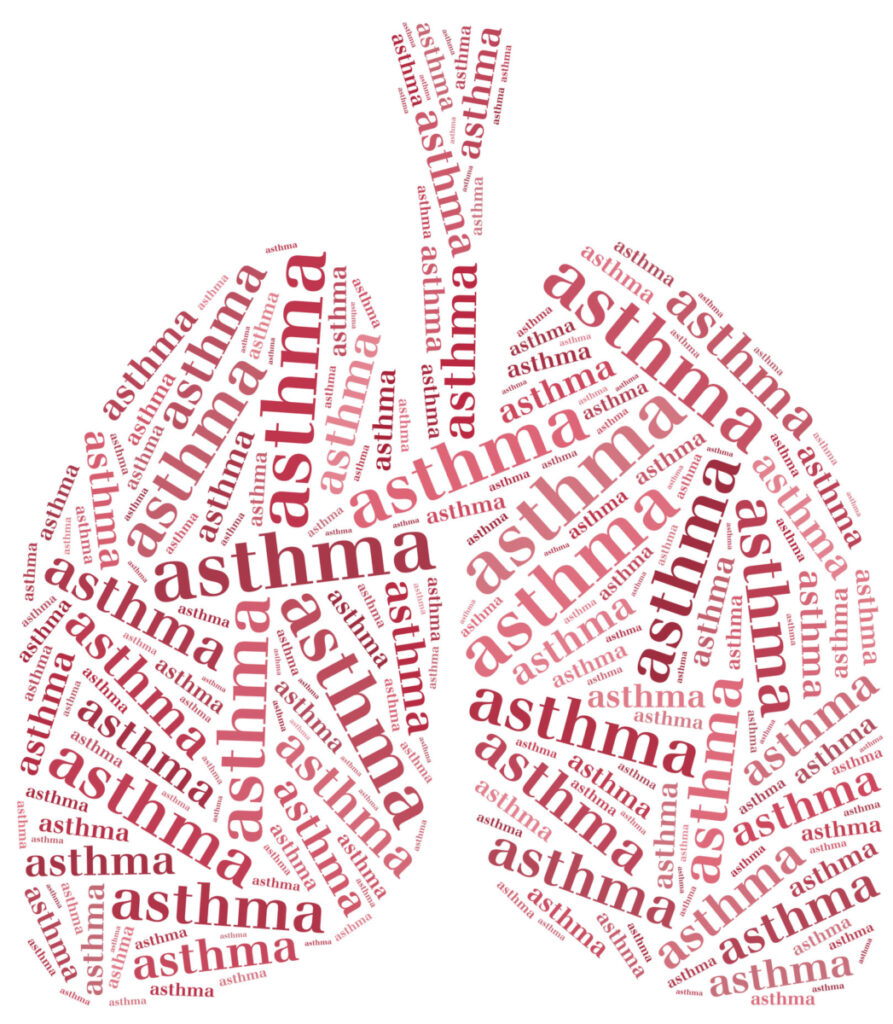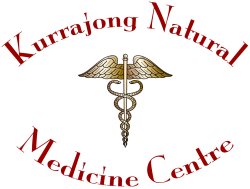Asthma - A Chinese Medicine Perspective
What is Asthma
Asthma is one of the most widespread chronic respiratory diseases, affecting approximately 300 million sufferers worldwide, and its incidence and severity have been continually increasing [1].
It is a common chronic diseases in adults, with a multifactorial aetiology that is characterised by chronic airway inflammation, hyper-responsiveness, and reversible airway obstruction [2].
Researchers have demonstrated that acupuncture might facilitate the prevention and treatment of it via its anti-inflammatory effects [3]. Nurwati, et al., reported that “Acupuncture has been shown to modulate Th1/Th2 balance, block inflammatory cells and mediators, improve airway remodelling, and regulate hypothalamic-pituitary-adrenal axis function. Acupuncture appears to exert its anti-asthmatic properties through multiple pathways” [3].
Asthma is characterised by symptoms of wheezing, dyspnea, and cough [4]. Furthermore, there may also be additional symptoms such as chronic breathlessness, difficulty in inhalation/exhalation , depression, oedema of ankles, cold limbs, lower backache, dizziness and others [5].

How Does Traditional Chinese Medicine (TCM) view Asthma
In Traditional Chinese Medicine (TCM) asthma is viewed within the categories of breathlessness, wheezing and cough [5]. Its aetiologies may be of both external origin or internal pathology. In chronic adult asthma, internal pathologies are most common and are usually associated with the Lungs, Kidneys and Spleen, however, external factors such as Wind, may also aggravate symptoms.
According to Chinese medicine theory, it can be caused by various factors, including:
-
External factors: These include wind, cold, heat, and dampness. When these pathogenic factors invade the body, they can disrupt the flow of Qi in the lungs, leading to aggravation of symptoms.
-
Internal imbalances: Internal imbalances may arise from deficiencies in the lungs, spleen, or kidney systems. Weakness in these organs can affect the body’s ability to properly distribute Qi and control the flow of fluids, leading to asthma.
-
Emotional factors: Chinese medicine recognizes the influence of emotions on health. Excessive sadness, grief, or worry can weaken the lung Qi and contribute to the development or exacerbation of symptoms.
-
Diet and lifestyle: Inadequate diet, such as consuming excessive amounts of cold or greasy foods, can impair digestion and weaken the lungs. Environmental factors, such as exposure to smoke or chemicals, can also trigger or worsen symptoms.
According to Maciocia, the Lungs, which govern Qi, are always involved, as in breathlessness Lung-Qi fails to descend. This failure to descend occurs when Lung-Qi is obstructed by exterior Wind or by Phlegm, or when it is deficient [5].
The Kidneys are the root of Qi; they receive Qi and hold it down. Lungs and Kidney work in coordination for proper breathing as Lung-Qi descends to the Kidneys and the Kidneys hold it down. The Lungs control exhalation and the Kidney inhalation. Thus, in chronic breathlessness a difficulty in inhalation indicates Kidney deficiency, while a difficulty in exhalation points to a Lung deficiency. Although the pattern of Kidneys not receiving Qi, which is typical of chronic breathlessness, is a Yang-deficiency pattern, both Kidney-Yin and Kidney-Yang deficiency can lead to chronic breathlessness [5].
The specific patterns and imbalances identified in TCM can vary from person to person, but here are some common perspectives and treatment approaches:
-
Lung Qi Deficiency: As mentioned above, this pattern is characterised by a weak Lung Qi, leading to shortness of breath, weak voice, and fatigue. TCM treatment aims to tonify and strengthen the Lung Qi through the use of herbal formulas and acupuncture points that support lung function.
-
Phlegm-Dampness Accumulation: This pattern involves the accumulation of phlegm and dampness in the lungs, leading to wheezing, coughing with sticky phlegm, and a heavy sensation in the chest. TCM treatment focuses on eliminating phlegm, resolving dampness, and improving the body’s ability to disperse fluids. Herbal remedies, acupuncture, and dietary modifications are commonly used.
-
Liver Qi Stagnation: In some cases, asthma may be associated with emotional factors such as stress, anger, or frustration, which can cause the Liver Qi to become stagnant. This pattern is characterised by a tight sensation in the chest, emotional instability, and a tendency to experience asthma attacks during periods of emotional stress. TCM treatment aims to regulate the Liver Qi and promote its smooth flow using acupuncture, herbal remedies, and stress-reduction techniques.
-
Kidney Deficiency: The Kidneys in TCM play a crucial role in maintaining overall vitality and respiratory health. Kidney Deficiency pattern may be seen in chronic asthma cases, especially in older individuals. Treatment involves tonifying the Kidney Qi and Yin, along with supporting the lung function. Herbal medicine, acupuncture, and lifestyle modifications are used to strengthen the Kidney energy.
Treatment Approaches using Acupuncture and Chinese herbal medicine .
-
Acupuncture: Acupuncture involves the insertion of thin needles into specific points on the body to stimulate and balance the flow of Qi. In the context of asthma, acupuncture may help in several ways:
- Opening the airways: Acupuncture points along the lung meridian and other relevant points can help to relax and dilate the bronchial tubes, making breathing easier.
- Reducing inflammation: Acupuncture may have anti-inflammatory effects, which can be beneficial in managing the chronic inflammation associated with this condition.
- Strengthening the immune system: By enhancing overall health and immunity, acupuncture can help reduce the frequency and severity of attacks triggered by respiratory infections or allergens.
- Managing stress: Acupuncture can help regulate the body’s response to stress, potentially reducing the likelihood of stress-induced attacks.
-
Chinese Herbal Medicine: Chinese herbal formulas are often prescribed in conjunction with acupuncture to address the underlying imbalances and patterns identified in TCM diagnosis. Herbal remedies may be formulated to:
- Tonify lung function and Qi: Certain herbs are used to strengthen the lungs and enhance their ability to function properly, addressing Lung Qi deficiency.
- Clear phlegm and resolve dampness: Herbal formulas can help reduce excess phlegm and dampness in the respiratory system, alleviating wheezing and coughing.
- Calm the Liver: In cases where emotional factors contribute to symptoms, herbs that soothe and regulate the Liver Qi may be prescribed.
- Nourish the Kidneys: When Kidney deficiency is identified, herbs that tonify the Kidney Qi and Yin may be included to support overall respiratory health.
Both acupuncture and Chinese herbal medicine have been shown to be beneficial in the treatment of lung disorders [3,6,7].
At Kurrajong Natural Medicine Centre our team of highly qualified and experienced practitioner are happy to develop a personalised treatment plan to help you manage your specific issues. Simply call (02) 4573 0784
What You Can Do to Help Yourself If You Suffer From Asthma
Manage Exposure to Allergens
One of the best things you can do to minimise adverse respiratory symptoms is to manage your exposure to allergens, such as dust, pollen, animal fur, or other known triggers.
Drink Enough Water
Drinking water is good for you in so many ways; Make sure you drink at least 2 litres of water a day, more if you are engaged in hard physical work. Being well-hydrated keeps your mucus thinner, aiding breathing as well as digestion.
Watch What You Eat
Avoid foods that you know trigger allergies and eat primarily fresh, unprocessed foods. In addition, avoid foods that are high in sugar or fried fats, as these increase mucous secretion and thickening of mucous.
Change Your Air Filters
To keep the air clean in your home, make sure to regularly clean or change your air filters. When they trap dust and distribute it around your home, it can cause breathing problems and trigger symptoms breathlessness. You may also wish to use an air purifier, as these remove particles that my trigger your symptoms from the air.
Minimise Dust
Keep your work- living-space clean and minimise the dust. A simple routine of dusting, vacuuming, and cleaning fabric surfaces can help prevent dust buildup. Don’t forget to wear a mask while cleaning to avoid inhaling the dust that gets kicked up in the process.
Build Up to an Active Lifestyle
A healthy lifestyle that includes physical activity is excellent for your lung health, but it can also be a trigger for certain types of asthma. Under the care of your healthcare provider, build up to a regular exercise routine for optimal results.
Avoid Smoke
If you suffer from brathlessness, you obviously should avoid smoking, but you should also avoid areas where you will be exposed to smoke of any kind.
Keep Your Inhaler Handy
Of course, you should always keep your inhaler handy in case of emergencies.
Exercise for Asthmatics
Exercise can be beneficial for individuals with lung disorders, as it helps improve cardiovascular fitness, lung function, and overall well-being. However, it’s essential for asthmatics to take certain precautions and choose appropriate exercises that minimise the risk of triggering asthma symptoms. Below are some exercises that are generally well-tolerated by people with lung problems:
Walking: Walking is a low-impact aerobic exercise that can be easily tailored to an individual’s fitness level. Start with a comfortable pace and gradually increase the intensity and duration over time.
Swimming: Swimming is an excellent exercise for asthmatics because the warm, humid air in indoor pools can be less likely to trigger symptoms. It also provides a full-body workout without putting stress on the joints.
Cycling: Cycling is a great option for asthmatics as it is a low-impact activity that allows for gradual intensity progression. Start with shorter distances and flat terrain, and gradually increase the duration and difficulty of your rides.
Yoga: Yoga can help improve breathing techniques, increase lung capacity, and reduce stress. Focus on gentle, controlled movements and incorporate deep breathing exercises to enhance respiratory function. Here are two specific yoga breathing techniques:
Diaphragmatic Breathing (also called Belly Breathing):
- Find a comfortable seated position or lie down on your back.
- Place one hand on your chest and the other hand on your abdomen.
- Take a slow, deep breath in through your nose, allowing your abdomen to rise as you fill your lungs with air. Ensure that your chest remains relatively still.
- Exhale slowly through your mouth, allowing your abdomen to fall as you release the air.
- Repeat this deep, diaphragmatic breathing for several minutes, focusing on the sensation of your breath and allowing it to become slow and relaxed.
Alternate Nostril Breathing (Nadi Shodhana):
- Find a comfortable seated position and relax your body.
- Close your right nostril with your right thumb and inhale slowly and deeply through your left nostril.
- Close your left nostril with your ring finger, release your right nostril, and exhale through your right nostril.
- Inhale through your right nostril, close it with your thumb, release your left nostril, and exhale through your left nostril.
- Continue this alternating pattern, inhaling through one nostril, closing it, and exhaling through the other nostril.
- Aim for smooth, controlled breaths and maintain a steady rhythm. Start with a few minutes and gradually increase the duration as you become more comfortable.
Tai Chi: Tai Chi is a low-impact exercise that involves slow, deliberate movements and deep breathing. It can help improve flexibility, balance, and overall fitness without placing excessive strain on the respiratory system.
Strength training: Resistance exercises using weights or resistance bands can be beneficial for asthmatics. Start with light weights and gradually increase the resistance over time. Focus on exercises that engage multiple muscle groups, such as squats, lunges, and chest presses.
Remember to consult with your healthcare provider before starting any new exercise regimen, especially if you are an asthmatic. They can provide personalised recommendations and guidance based on your specific needs and medical history. It’s also important to warm up before exercising, carry your inhaler if needed, and listen to your body, taking breaks as necessary.
References
- Su L, Meng L, Chen R, Wu W, Peng B, Man L. Acupoint Application for Asthma Therapy in Adults: A Systematic Review and Meta-Analysis of Randomized Controlled Trials. Forsch Komplementmed. 2016;23(1):16-21.
- Jiang, C., Jiang, L., & Qin, Q. (2019). Conventional Treatments plus Acupuncture: A Systematic Review and Meta-Analysis. Evidence-based complementary and alternative medicine : eCAM, 2019, 9580670. https://doi.org/10.1155/2019/9580670
- Nurwati, I., Muthmainah, M., & Huda, K. N. (2020). Acupuncture: Its Potential Significance in Clinical Practice. Medical acupuncture, 32(5), 272–279. https://doi.org/10.1089/acu.2020.1443
- McCracken, J. L., Veeranki, S. P., Ameredes, B. T., & Calhoun, W. J. (2017). Diagnosis and Management of Asthma in Adults: A Review. JAMA, 318(3), 279–290. https://doi.org/10.1001/jama.2017.8372
- Marciocia, G. (1994) The Practice of Chinese Medicine: The Treatment of Disease with Acupuncture and Chinese Herbs, Edinburgh: Elsevier Churchill Livingstone.
- Zhang, H. P., Wang, L., Wang, Z., Xu, X. R., Zhou, X. M., Liu, G., He, L. Y., Wang, J., Hsu, A., Li, W. M., & Wang, G. (2018). Chinese herbal medicine formula for acute asthma: A multi-center, randomized, double-blind, proof-of-concept trial. Respiratory medicine, 140, 42–49. https://doi.org/10.1016/j.rmed.2018.05.014
- Shergis, J. L., Wu, L., Zhang, A. L., Guo, X., Lu, C., & Xue, C. C. (2016). A systematic review. The Journal of asthma : official journal of the Association for the Care of Asthma, 53(6), 650–659. https://doi.org/10.3109/02770903.2015.1101473
Disclaimer
Disclaimer information for users of the Kurrajong Natural Medicine Centre website.
Page last updated: 24th June 2021
THE INFORMATION PROVIDED IN ANY OF THE ARTICLES PUBLISHED ON THIS SITE IS FOR EDUCATION AND INFORMATION PURPOSES ONLY.
NO CLAIMS ARE MADE AS TO THE EFFECTIVENESS OF ANY OF THE TREATMENTS USING ACUPUNCTURE OR THAT THIS THERAPY IS SUITABLE FOR THE READER.
THE SOURCES OF ALL THE ARTICLES ARE LISTED AND COME FROM REPUTABLE PEER-REVIEWED SCIENTIFIC JOURNALS. WHERE POSSIBLE LINKS TO THE ORIGINAL SOURCE ARE PROVIDED FOR THE READER TO FOLLOW.
Articles published on this page are not intended to provide diagnosis, treatment or medical advice. Content provided on this page is for informational purposes only. Please consult with a physician or other healthcare professional regarding any medical or health related diagnosis or treatment options. Information on this page should not be considered as a substitute for advice from a healthcare professional. The claims made about specific products throughout this article are not approved to diagnose, treat, cure or prevent disease.
Information provided for education and research information only
The information on this website is presented by Kurrajong Natural Medicine Centre for the purpose of disseminating health information free of charge for the benefit of the public.
While Kurrajong Natural Medicine Centre has exercised due care in ensuring the accuracy of the material contained on this website, the information on the site is made available on the basis that Kurrajong Natural Medicine Centre is not providing professional advice on a particular matter.
This website is not a substitute for independent professional advice. Nothing contained in this site is intended to be used as medical advice and it is not intended to be used to diagnose, treat, cure or prevent any disease, nor should it be used for therapeutic purposes or as a substitute for your own health professional’s advice.
Kurrajong Natural Medicine Centre does not accept any liability for any injury, loss or damage incurred by use of or reliance on the information provided on this website.
Quality of information
Kurrajong Natural Medicine Centre makes every effort to ensure the quality of the information available on this website and updates the information regularly. Before relying on the information on this site, however, users should carefully evaluate its accuracy, currency, completeness and relevance for their purposes, and should obtain any appropriate professional advice relevant to their particular circumstances. Kurrajong Natural Medicine Centre cannot guarantee and assumes no legal liability or responsibility for the accuracy, currency, completeness or interpretation of the information.
The material may include the views or recommendations of third parties and does not necessarily reflect the views of Kurrajong Natural Medicine Centre or indicate a commitment to a particular course of action.
Links to other websites
This website contains links to other websites which are external to Kurrajong Natural Medicine Centre. Kurrajong Natural Medicine Centre takes reasonable care in selecting linking websites but Kurrajong Natural Medicine Centre accepts no responsibility for material contained in a website that is linked to this site. It is the responsibility of the user to make their own decisions about the accuracy, currency, reliability and correctness of information contained in linked external websites.
Links to external websites are provided for the user’s convenience and do not constitute an endorsement or a recommendation of any third party products or services offered by virtue of any information, material or content linked from or to this site. Users of links provided by this site are responsible for being aware of which organisation is hosting the site they visit.
Views or recommendations provided in linked sites may include the views or recommendations of third parties and do not necessarily reflect those of Kurrajong Natural Medicine Centre or indicate a commitment to a particular course of action. .



